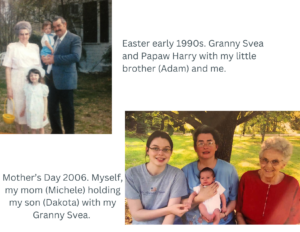A Calling to Comfort: My Journey into Hospice Care

Choosing a career in hospice and palliative care was not just a professional decision for me—it was a calling. As a nurse practitioner with years of experience in various healthcare settings, I have always been drawn to the human aspect of medicine. While acute care and primary care play essential roles in health and wellness, I found my true passion in hospice, where the focus is on comfort, dignity, and quality of life in a patient’s final journey.
From the beginning of my nursing career in 2007, I encountered patients and families facing the most challenging moments of their lives. Working in home health and case management allowed me to witness firsthand the gaps in care that many patients experience as they transition toward end-of-life care. Too often, I saw families overwhelmed by complex medical decisions, uncertain about how to best support their loved ones, and struggling with the emotional weight of impending loss. These experiences solidified my belief that hospice is not about giving up—it’s about embracing life’s final chapter with compassion and dignity.
The hospice nurse who cared for my Papaw when I was 8 years old also cared for my Granny when I was 23, leaving a profound impact on me. She provided unwavering support to our family, offering encouragement while also sharing in our grief, standing just outside the hospital room door as we mourned together. The positive impact hospice had on my family further reinforced my decision. Their compassion, support, and expertise not only provided comfort to my grandparents but also helped my family navigate an incredibly difficult time. Seeing the difference they made inspired me to pursue a career where I could offer the same level of care and reassurance to others in need.
One of the most rewarding aspects of hospice is the ability to build meaningful relationships with patients and their families. Unlike fast-paced medical environments where interactions are often brief, hospice allows for deeper connections. It offers the opportunity to address not only physical symptoms but also emotional, spiritual, and psychological needs. In hospice, we care for the whole person, not just the disease, and that philosophy resonates deeply with me.
I also chose hospice because it aligns with my core values as a healthcare provider. Advocating for patient-centered care, empowering families with education and resources, and ensuring that patients spend their final days in comfort rather than distress are all integral to my practice. I have seen the difference that compassionate end-of-life care can make—not just for patients but for their loved ones who carry those memories with them forever.
Hospice is often misunderstood, but I have made it my mission to change that perception. It is not about hastening death, nor is it a place where hope is lost. Instead, hospice is about maximizing the time that remains, allowing patients to experience peace, closure, and love in their final days. It is a privilege to walk alongside them in this journey, to listen to their stories, to honor their wishes, and to provide comfort when it is needed most.
Looking back, I can confidently say that choosing hospice was one of the most fulfilling decisions of my career. It is a path that requires empathy, resilience, and unwavering dedication, but it is also one that brings immeasurable rewards. Every day, I am reminded of the profound impact that compassionate care can have, and I am grateful to be part of a field that truly makes a difference in people’s lives. Currently, my job is in Palliative Care (which is often confused for hospice) but my heart will always be in Hospice. Here are the differences between Palliative Care and Hospice.
Palliative Care
- Palliative care is for anyone with a serious illness, no matter their age or stage of disease.
- It can be provided alongside treatments aimed at curing the illness (like chemotherapy or surgery).
- The goal is to manage symptoms, such as pain, nausea, or shortness of breath, and to provide emotional and spiritual support.
- It is available at any time during an illness and can be provided in hospitals, clinics, or at home.
Hospice Care
- Hospice is for people who are nearing the end of life, typically with a life expectancy of six months or less.
- It does not include curative treatments—instead, it focuses entirely on comfort and quality of life.
- Hospice care provides medical, emotional, and spiritual support for both the patient and their family.
- It is usually provided at home, in hospice facilities, or sometimes in nursing homes or hospitals.
Key Difference
- Palliative care can be given at any stage of illness and alongside treatments.
- Hospice care is for the final months of life and focuses on comfort rather than a cure.
 Ashley Wiltcher is the author of
Ashley Wiltcher is the author of
Heart & Hands: A Journey in Nursing blog.
Heart & Hands: A Journey in Nursing
Palliative Care Nurse Practitioner for Tillery Compassionate Care

